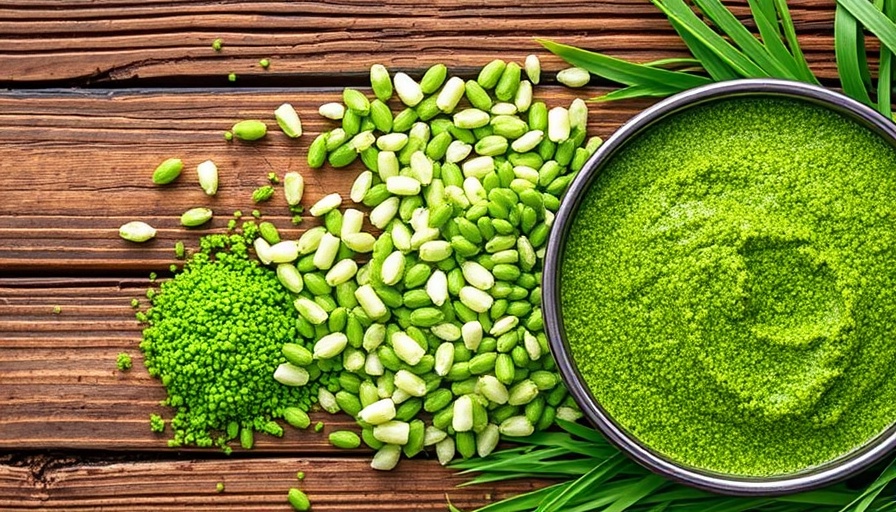
Understanding Emulsifiers and Their Role in Processed Foods
Emulsifiers, like carboxymethylcellulose and polysorbate 80, are ubiquitous in our food supply, enhancing textures and extending shelf life. Found in everything from salad dressings to baked goods, they serve a crucial function in modern processed foods. However, as our diets become laden with these additives, questions about their safety are rising.
The Gut Microbiome Connection: Why It Matters
The gut microbiome plays a crucial role in our overall health, affecting digestion, immunity, and even mood. With emulsifiers being widely consumed, their potential impact on the gut is a significant concern. There is growing evidence that these substances may disrupt gut bacteria and lead to conditions like leaky gut syndrome, where harmful toxins can enter the bloodstream.
What Science Says: Recent Studies on Emulsifiers
While emulsifiers have been deemed safe by regulatory agencies, studies are revealing a different story. For instance, research has shown that these compounds can alter the gut microbiota composition, potentially leading to inflammation and other health issues. Notably, a study highlighted that dietary emulsifiers could alter gene expression linked to gut health, raising alarms about long-term effects on humans.
Cultural and Dietary Context: The Modern Western Diet
The typical Western diet is heavily processed, often characterized by high meat intake and low consumption of plant-based foods. This diet not only increases exposure to chemical additives like emulsifiers but also correlates with a rise in chronic ailments such as obesity and diabetes. By understanding the interplay between emulsifiers and our dietary habits, we can make more conscious choices about what we eat.
Practical Tips for Healthier Choices
As a health-conscious consumer, it is vital to be aware of the food additives in what we eat. Reading ingredient labels can help in making informed choices. Opting for fresh, minimally processed foods, involving less reliance on products with emulsifiers, is one way to support a healthier gut microbiome. Additionally, homemade dressings and spreads allow you to control exactly what goes into your meals.
Actionable Insights: Building Gut Health
Improving gut health can often involve simple dietary changes. Increasing fiber intake through fruits, vegetables, and whole grains nourishes beneficial gut bacteria. Furthermore, consider incorporating fermented foods like yogurt, kimchi, and sauerkraut to help restore balance in the gut. Being proactive about your diet is a step toward enhancing overall well-being.
The Future of Emulsifiers: What’s Next?
As more research emerges, the food industry may need to reassess the safety of emulsifiers. Public interest and concern regarding gut health and dietary choices could lead to reforms in food production practices. Being part of this conversation is essential, as consumer demand influences industry standards and offerings.
In conclusion, understanding the impact of emulsifiers on our health is crucial as we navigate our diets in a world filled with processed foods. By staying informed, making conscious choices, and advocating for healthier eating practices, we can take proactive steps toward better health. For anyone concerned about their dietary habits, now is the time to empower yourself and explore the various ways to enhance your wellness journey.
 Add Row
Add Row  Add
Add 




Write A Comment